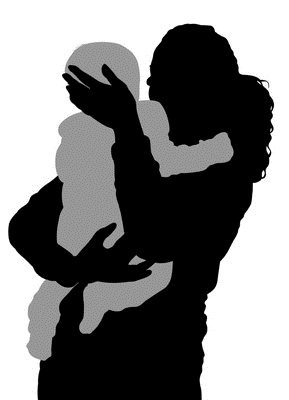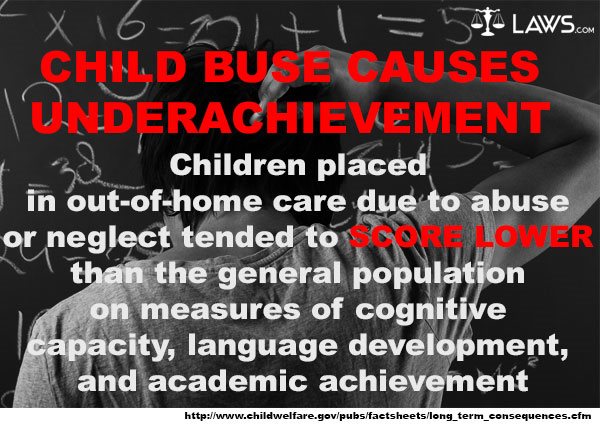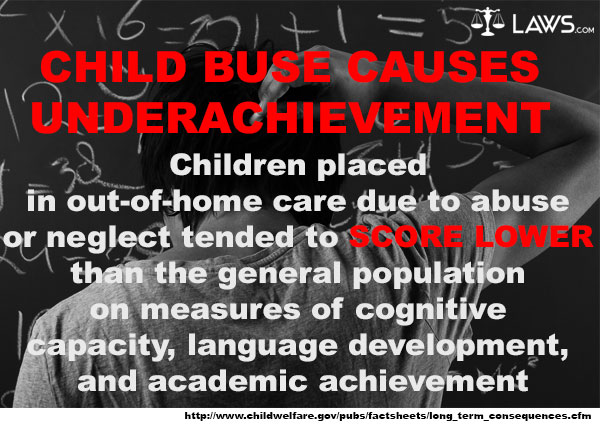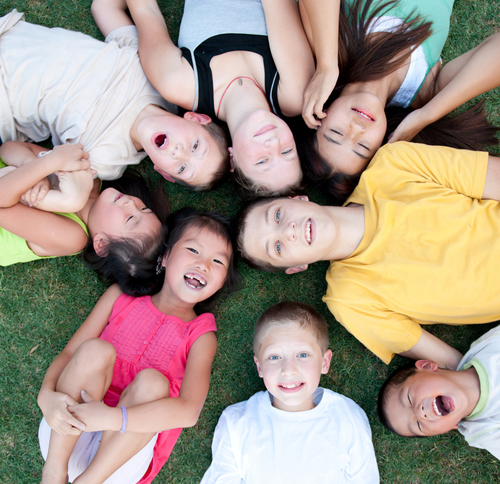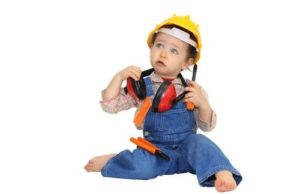How Domestic Violence Affects Child Abuse
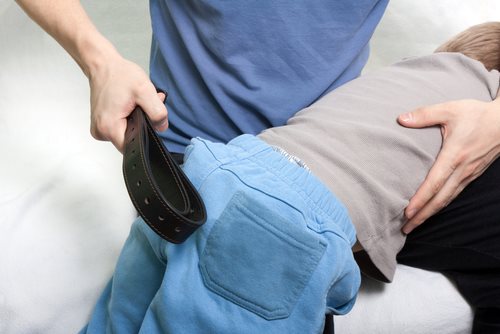 Domestic Violence as a Gateway for Child Abuse
Domestic Violence as a Gateway for Child Abuse
The crime of Domestic Violence is classified as any type of abuse assault undertaken by one member of a cohabitant partnership unto another member of that same partnership; this may include married couples, intimate partners, or individuals sharing a residence with regard to the participation in a romantic relationship. Studies illustrate that Domestic Violence can occur within a variety of settings and forms; similarly, this is a nature shared within the classification of child abuse, as well – domestic violence can manifest itself in a variety of physical, emotional, sexual, or psychological forms.
Children are Victims of Domestic Violence Offenses
The classification of Domestic Violence charges and offenses are rarely uniform; akin to the classification of both victims and perpetrators of child abuse, involved parties within Domestic Violence offenses are neither specific to sexual orientation nor marital status, gender, race, creed, religion, ethnicity, and socioeconomic status – simply put, all forms of domestic abuse can take place without limit:
Primarily, the subjection of children to domestic violence is considered a crime in and of itself; the witness of domestic violence may result in the traumatization of a child, resulting in psychological and emotional damage
The notion of threat and duress within instances of domestic violence commonly prove to be detrimental for a child, in addition to the trauma and damage sustained; the domestic violence offender may pose threats involving potential harm and damage in the event that a child reports the activity witnessed as domestic violence – this action alone can be classified as emotional child abuse
The presence of domestic violence within a household portrays a negative influence with regard to the raising of children, which results from neglect, disrespect, and violence; studies have demonstrated that children produced from households in which domestic violence has taken place are prone to repeat such behavior
Domestic Violence Offenses
As previously stated, the nature of abuse transcends a uniform method of categorization; while primary classifications of domestic violence exist, the events and undertakings involved are quite expansive and specific:
Physical Domestic Violence
Domestic violence – in its physical form – constitutes abuse or assault sustained by one or both members of a romantic partnership
Emotional and Psychological Domestic Violence
This type of Domestic violence constitutes verbal abuse or assault sustained by one or both members of a cohabitation partnership, including the use of insult, threats, and manipulation
Sexual Domestic Violence
Domestic Violence in its sexual form constitutes sexual abuse sustained by one or both members of a romantic partnership, including spousal rape, sexual abuse, and sexual assault
What to do if a Friend or Family Member is the Victim of Child Abuse? READ THIS
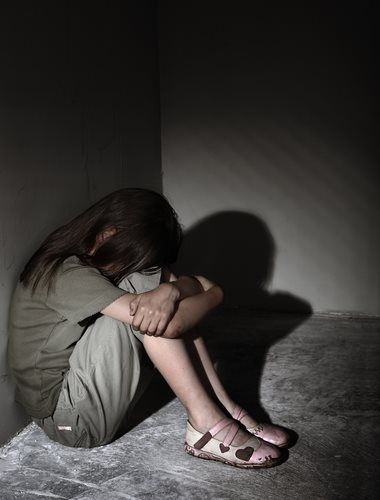 Identifying a Victim of Child Abuse
Identifying a Victim of Child Abuse
Due to the fact that a varying nature of Child Abuse exists, identifying an abused person can prove to range in difficulty; yet, in certain cases, victims of child abuse will avoid discussing their abuse – oftentimes, victims of child abuse will present dishonest explanations for evidence of child abuse. In the event that you suspect that a friend or family member is the victim of Child Abuse, this can be an extremely difficult and emotionally-trying experience for the victim, as well as for you:
The reasons that have brought you to this article suggest that you are a caring and compassionate individual who is concerned for the safety of a friend or loved one; you are encouraged to allow yourself a great deal of credit for taking the initiative to protect the safety and wellbeing of another person, as well as contribute to preventing criminal behavior
Types of Child Abuse
Child Abuse can take place in a variety of forms; some of which are visible, others are not. In certain cases, a bruise, injury, or blemish may be the result of Child Abuse, while in other cases, that injury may have taken place as a result of an accident or mishap; as a result, the classification of Child Abuse is an extremely difficult one. Child Abuse occurs most commonly on a physical, sexual, emotional, or psychological level; while the effects of physical and sexual child abuse may be more evident, the effects of emotional and psychological child abuse may not be.
Signs of Child Abuse
Some of the most common signs of child abuse may include the following:
Bruises, injuries, and blemishes on the body of a victim occurring on a consistent basis
Hints and attempts to convey the abuse on the part of the victim; these may arise in a vague fashion – you are encouraged to be aware of the words and statements issued by a friend of loved one
Reporting Child Abuse Involving a Friend or Family Member
Identifying Child Abuse is rarely uniform, and you are encouraged to remember that even the accusation of alleged Child Abuse can carry with it very serious repercussions; Child Abuse is typically punished to the fullest extent of the law – however, you are encouraged to address your concerns to a law enforcement agent, religious leader, or school official. Upon reporting a Child Abuse offense, you may be met with dispute or resistance from the victim; this may result from guilt, embarrassment, or the desire to protect the abuser:
While these may be typical responses from certain victims, please be assured that nobody deserves to be a victim of abuse; although you may be dissuaded the report an offense, reporting a Child Abuse offense to a trusted individual is the most effective method that can be undertaken in order to help a victim
Individuals have been victims, made aware of, or witnessed child abuses are encouraged to contact their local authorities or law enforcement department in order to report the details of the offense. In the event that an individual wishes to do so in an anonymous fashion, they should contact the Department of Child Protective Services immediately at (800) 422-4453
I’m Abused, What Should I Do? READ THIS
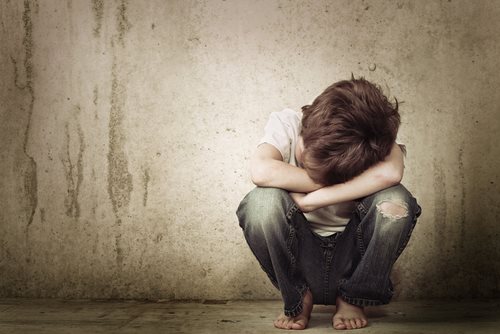 Getting Help for Child Abuse
Getting Help for Child Abuse
In the event that you are the victim of child abuse – or suspect that you may be the victim of child abuse – please be assured that a variety of options exist for you in order to protect yourself and your safety; it is important that if you are reading this, you understand that you are never to blame for child abuse – you are a victim of child abuse and did nothing to contribute to your current situation.
Identifying Child Abuse
Child abuse can take place in a variety of settings, actions, and classifications; primarily, the most common types of child abuse are sexual child abuse, emotional or psychological child abuse, and physical child abuse – all of these types of child abuse retain different classifications. If you feel as though you have undergone mistreatment, neglect, harm, or violation by another individual – regardless of their relationship to you or their age – you are encouraged to reach out for support.
Reporting a Child Abuse Case
In many situations, victims of child abuse will experience a wide range of emotions with regard to their current situation; while certain individuals are quick to report child abuse suffered upon them, other victims of child abuse find it more difficult to report such offenses – this can take place for a variety of reasons:
What to do if you are Afraid to Report a Child Abuse Offense?
Sometimes, victims of child abuse receive threats from their abusers; these threats result from the fact that abuser does not want to be discovered and responsible for their crimes – in other cases, the abuser may make excuses for their actions. In either case, the actions of an individual who abuses a child are not only dangerous, criminal, and violating, but also the sole responsibility of the abuser; there are neither any excuses for child abuse, nor explanations allowing for the slightest permissibility of that nature of criminal behavior:
If you are the victim of child abuse and have received threats conditional on telling another individual about the abuse that you have suffered, you might be frightened; however, the seriousness of a child abuse offense typically result in swift recourse – you are encouraged to report the abuse to a law enforcement officer, religious leader, or school official
Upon reporting a child abuse offense, you may feel ashamed or responsible for the criminal behavior undertaken by the abuser; however, you are neither to blame for any abuse suffered, nor responsible for the actions of the abuser – you do deserve to be protected, safe, happy, and healthy
Individuals have been victims, made aware of, or witnessed child abuses are encouraged to contact their local authorities or law enforcement department in order to report the details of the offense. In the event that an individual wishes to do so in an anonymous fashion, they should contact the Department of Child Protective Services immediately at (800) 422-4453
Man Gets 245 Years for Videotaping and Drugging Children
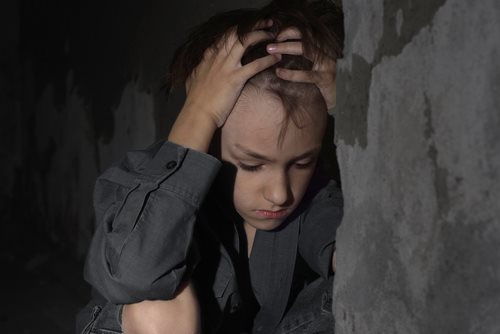
On November 6, 2012, the US Attorney’s Office for the Western District of Missouri announced that a man from Kansas City was sentenced to 245 years in prison for drugging and molesting a total of 13 children and videotaping some of the sexual abuse.
David M. Ketchmark, the Acting US Attorney for the Western District of Missouri, stated: “We’re satisfied that an extremely dangerous sexual predator is guaranteed to spend the rest of his life in prison. . . .The serial abuser will never victimize another child for the rest of his life.”
Ketchmark admitted that the victims were between 6 and 13 years old, and he stated the abuse started in 1997. All of the abuse occurred at his residence, and most of the videos were recorded in his basement.
He told authorities that he gave the victims sleeping pills—even Ambien. The pills were placed in ice cream and soda that he gave to the victims. The victims were videotaped in bed as they were unconscious and subject to different kinds of molestation. Edwards also admitted that he used his son to lure potential victims to his home. He encouraged his son to have sleepovers, and some of the victims remember having ice cream eating contests at his home.
Government evidence indicates that Edwards had videos, pictures, and documents on his computer that related to the molestations. Authorities also found a document called “How to Molest Young Girls” that gave instructions about specific dosage amounts for children and more.
Edward was caught by authorities after two different stings in May and June of 2009. The FBI, the Independence Police Department, and the Heart of America Regional Computer Forensics Laboratory were in charge of the investigation. Assistant U.S. Attorney Katherine Fincham was in charge of prosecution.
Source: Federal Bureau of Investigation
Former Peace Corps Volunteer Gets 15 Years

On October 11, 2012, the ICE’s Homeland Security Investigations (HSI) and the National Prosecuting Authority (NPA) for South Africa announced that Jesse Osmun was sentenced to 180 months in prison for crimes during his time as a Peace Corps volunteer. He received the prison sentence and 10 years of supervised release for sexually abusing four girls under the age of 6 while volunteering in South Africa.
U.S. Embassy Pretoria Chargé d’Affairs Virginia E. Palmer stated, “This case has shown that both the United States and South Africa have no tolerance when it comes to the abuse of innocent children. Through close collaboration between U.S. and South African law enforcement officials we have been able to close this sad case and bring justice to this criminal. Our heart goes out to the young victims involved.”
Osmun became a Peace Corps volunteer in 2010 and began working at a non-governmental organization (NGO) in South Africa. The organization provided education, food and more to children in the area, and many of these children were orphans.
Osmun was confronted by his program director about allegations of sexual abuse in May of 2011, and he quickly resigned from the Peace Corps. He returned to the United States on June 2 of 2011, and HSI quickly began an investigation into the allegations with help from the South African Police Service and the Directorate for Priority Crime Investigations.
During the investigation, it was found the Osmun encouraged the young girls to engage in sexual acts by persuading them with candy and offering to play games. The abuse occurred about twice a week over 5 months.
Osmun was arrested at his home in Milford, Connecticut on June 27, 2012. He has remained detained since his arrest, and he has pleaded guilty to his charges.
Source: U.S. Immigration and Customs Enforcement

